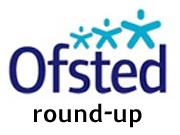Ofsted round-up – This week: A variety of providers receive their results

Phones 4U Limited, Staffordshire
Summary of grades awarded:
Effectiveness of provision Good: Grade 2
Capacity to improve Outstanding: Grade 1
Achievement and standards Outstanding: Grade 1
Quality of provision Good: Grade 2
Leadership and management Good: Grade 2
Equality of opportunity Contributory grade: Satisfactory: Grade 3
Sector subject areas:
Retail and commercial enterprise Good: Grade 2
Business, administration and law Good: Grade 2
Part of the MobileServe group, Phones 4U began trading as a mobile phone retailer in 1996. Since 2008, the group has held a contract with the National Employer Service (NES) of the Learning and Skills Council (LSC) to provide apprentice and adult training. The provider’s head of training has strategic responsibility for LSC funding. Phones 4U employs all the learners who are undertaking either a sales or customer service programme.
The overall effectiveness of Phones 4U’s provision was found to be good, with achievement and standards judged as outstanding. The quality of provision in its two subject areas is also good, and apprenticeship frameworks in sales are rated high and outstanding in customer service. Ofsted added that in both sector subject areas the learners currently on programme are making good progress.
Leadership and management are also good, enabling learners’ success rates across all programmes to be high. Inspectors noted that Phones 4U has particularly effective partnership working with its subcontractor, and its training centre resources are excellent. However, the provider does not sufficiently analyse and use equality of opportunity data. The inspection report also said the group "places insufficient focus on learning during assessment of quality through class observation".
Phones 4U has an outstanding capability to improve, and its key strengths included good staff development and support, and a well-planned and managed expansion of provision. Weaknesses highlighted included limited opportunities to individualise training and an insufficient focus on the learners’ experience during class observations.
Action for Blind People, Epsom
Summary of grades awarded:
Effectiveness of provision Good: Grade 2
Capacity to improve Good: Grade 2
Achievement and standards Good: Grade 2
Quality of provision Good: Grade 2
Leadership and management Satisfactory: Grade 3
Equality of opportunity Contributory grade: Good: Grade 2
Sector subject area:
Preparation for Life and Work Good: Grade 2
Action for Blind People (Action) was founded as a charity in 1857 to provide services to the visually impaired, including advice and guidance, accommodation and leisure activities. The charity’s Workstep programme was launched in 2001, and it now offers 105 places on the scheme. Action owns and operates a supported factory in London and manages another in Norwich. The charity has 60 external clients, and 15 are with the Royal National Institute for the Blind (RNIB), which the group entered a formal partnership with in April 2009 to widen its ability to support Workstep participants.
According to Ofsted, Action’s provision is adequate to meet the needs of those receiving it, and overall effectiveness is good. Its achievement and standards are also good, as is the quality of provision. Action received good results across the board, but its leadership and management were deemed only satisfactory. Inspectors observed that satisfactory steps had been taken since its previous inspection and measures to safeguard participants are also satisfactory.
The charity’s capacity to improve is good and progression into unsupported employment was found to have improved significantly and steadily since the previous inspection. Ofsted said: "At the previous inspection, all parts of the provision were graded as satisfactory. At this inspection, grades improved for all aspects except leadership and management which remain satisfactory."
Key strengths included a good development of skills and independence, good progression into unsupported employment, highly effective employer engagement and very effective and comprehensive support. Weaknesses highlighted included an unsatisfactory target setting for participants, ineffective use of client information to aid management of the programme and an insufficient implementation of a literacy and numeracy strategy.
Southampton City NHS, Southampton
Summary of grades awarded:
Effectiveness of provision Satisfactory: Grade 3
Capacity to improve Satisfactory: Grade 3
Achievement and standards Satisfactory: Grade 3
Quality of provision Satisfactory: Grade 3
Leadership and management Satisfactory: Grade 3
Equality of opportunity Contributory grade: Good: Grade 2
Sector subject area:
Health, public services and care Satisfactory: Grade 3
Southampton Community Healthcare NHS is hosted by NHS Southampton City, formally known as Southampton City Primary Care Trust (SCPCT). Staff learning and training is delivered through SCPCT’s National Vocational Qualification (NVQ) Centre (the Centre), which is based in Moorgreen Hospital on the outskirts of Southampton. The Centre became part of Southampton Community Healthcare NHS after SCPCT became two business divisions in April 2009.
Overall, the effectiveness of the provision was found to be satisfactory, as was its achievement and standards, quality of provision and provision in health, public services and care. However, the leadership and management of its training provision was judged as good by inspectors. SCPCT’s capacity to improve is also satisfactory. Although it appointed a new NVQ centre manager in November last year, which helped place greater importance on quality improvement and monitoring of performance, procedures for quality of improvement are not yet complete.
The report added that "the provider has not yet implemented a planned and routine cycle for quality improvement. The present quality improvement plan identifies key areas for improvement, but the plan is brief and contains insufficient detail to bring about effective quality improvement across all aspects of provision".
Key strengths included good development of learners’ workplace skills and knowledge, high standards of learners’ work at Level 3 and particularly good awareness and understanding by learners of equality and diversity and safeguarding. Weaknesses highlighted included low timely success rates and incomplete arrangements for quality assurance and improvement.






Responses